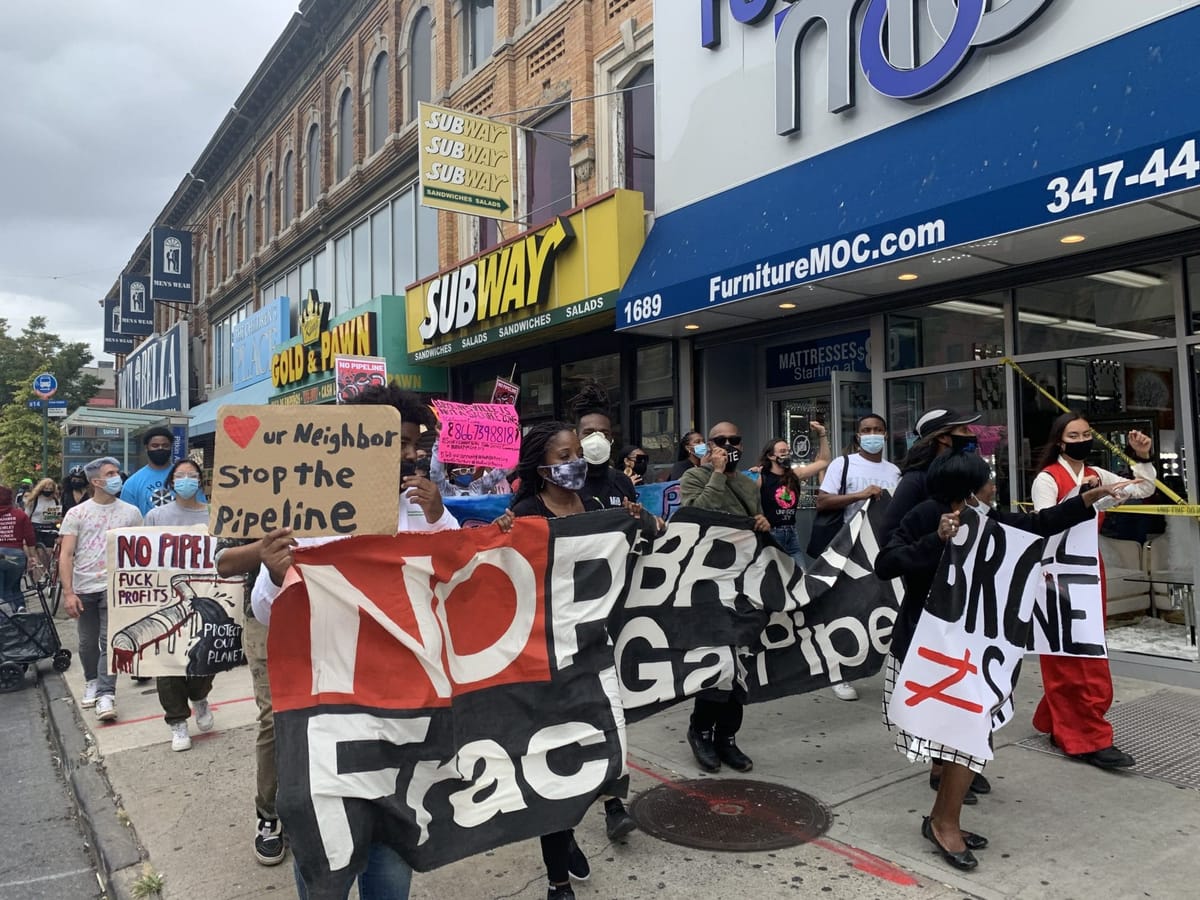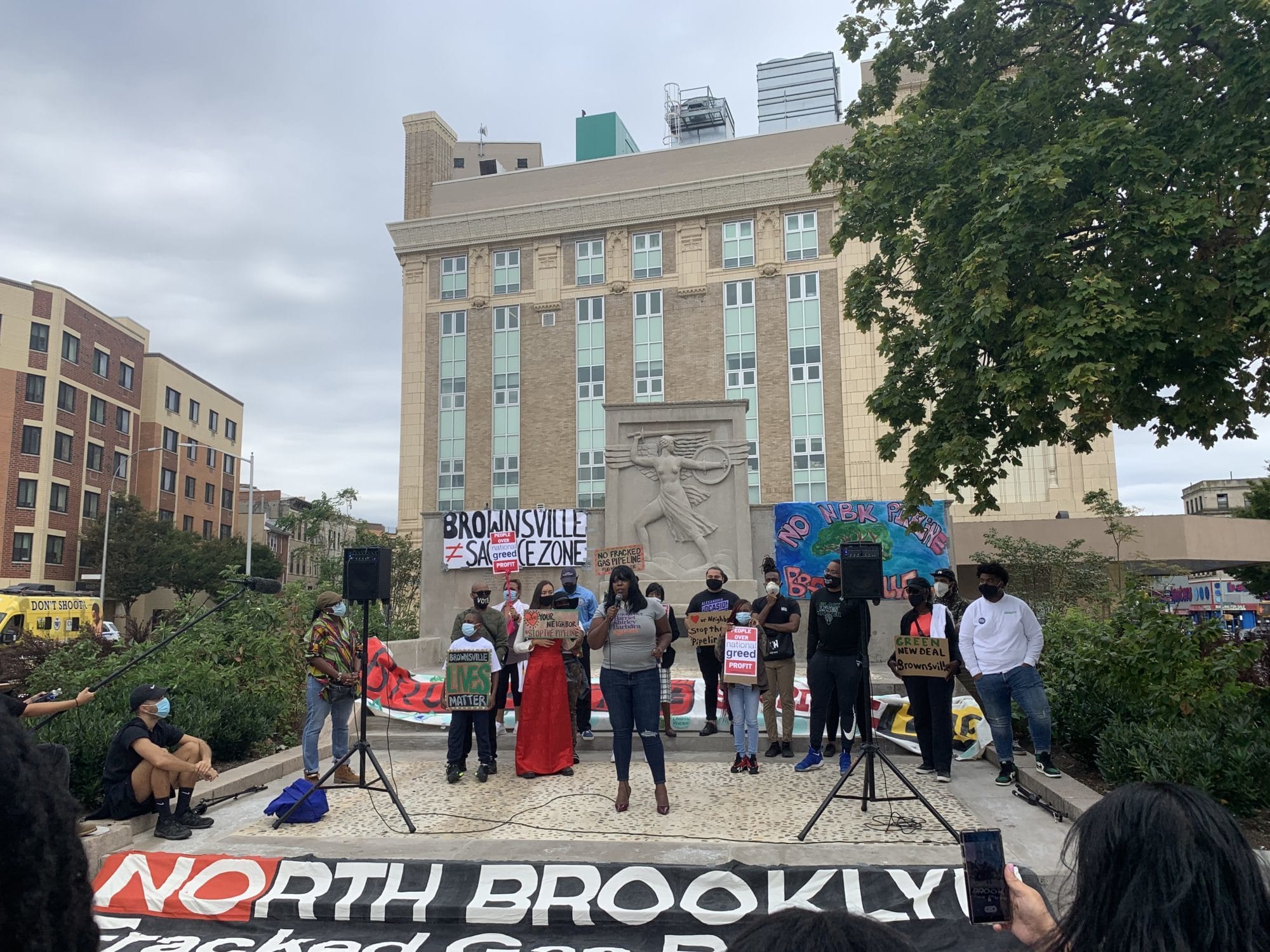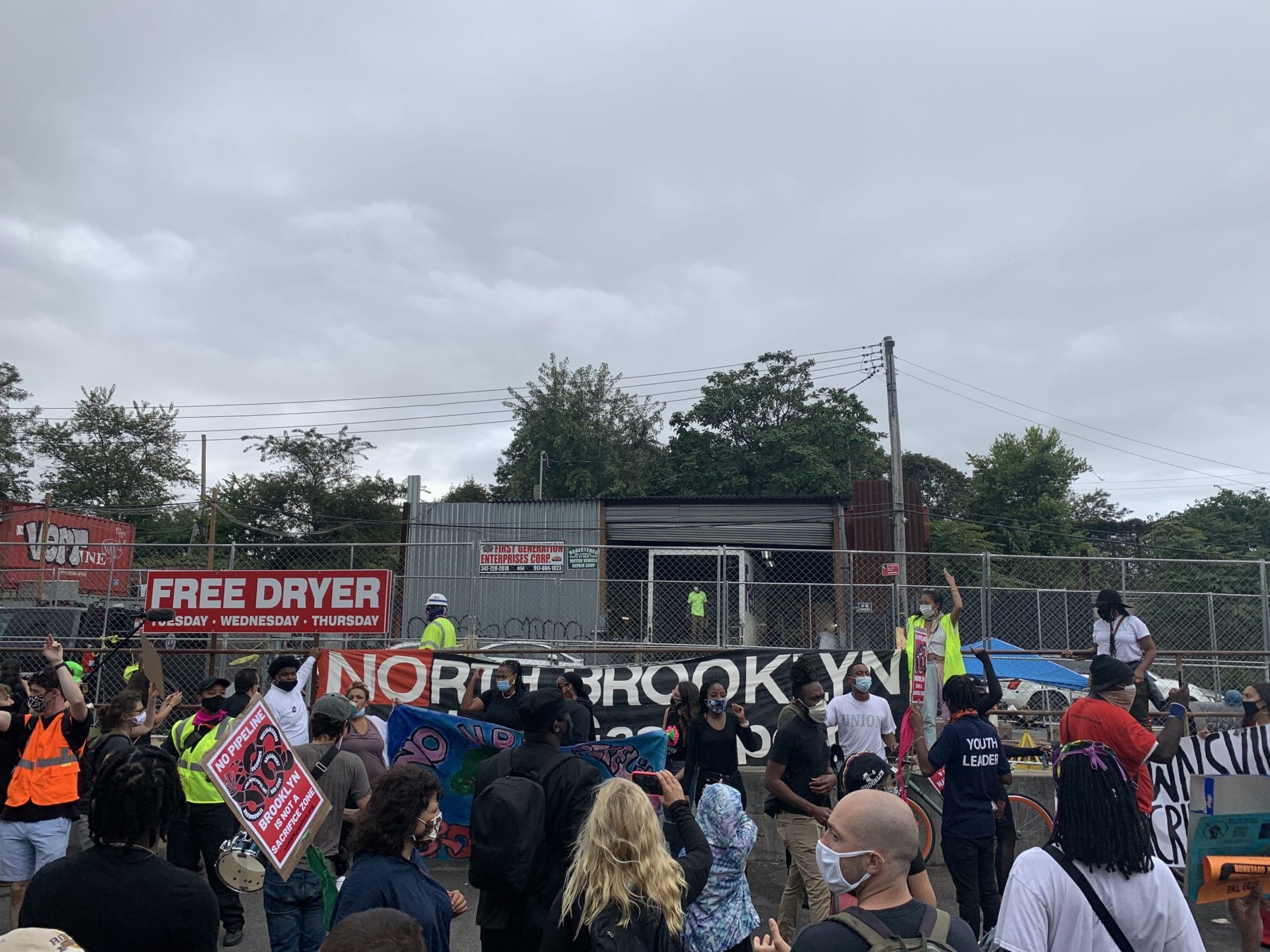“Brownsville is not a sacrifice zone,” Activists Cry At Protest Against North Brooklyn Pipeline


Latrice Walker, assemblywoman for New York State’s District 55, still distinctly remembers what it was like growing up with childhood asthma in Brownsville.
“There were days when I would be on a machine at Kings County Hospital clinging to my chest, because I couldn’t breathe,” she told a crowd of around 100 protestors gathered at Zion Triangle on September 26 to oppose the fifth phase of construction of the Metropolitan Reliability Infrastructure (MRI) project, more commonly known as the North Brooklyn pipeline.
Many, Walker included, say the pipeline would exacerbate existing health risks that Brooklyn residents — primarily low-income and people of color — have faced for years.
“‘I can’t breathe’ is not a new phenomenon,” Walker continued. “We have not been able to breathe for a long time in our communities.”
The pipeline, which would carry fracked gas through Brownsville, Bedford-Stuyvesant, Bushwick, Williamsburg and Greenpoint to a National Grid Depot on Newtown Creek, is currently in its fourth phase of construction. National Grid has yet to receive approval from the State of New York for the fifth phase, and is asking for an additional $185-million in taxpayer funds to complete all phases of the project.

FrackTracker estimates show that approximately 153,000 New Yorkers reside within the evacuation zone of the pipeline, alongside 60 schools and 80 daycare centers, were it to leak or explode. Many of these residents are already at increased risk of respiratory disease.
Brownsville, specifically, is 78% Black, and has long been known to have the highest rates of asthma across all of New York City, due largely to air pollution in the neighborhood. Walker, who joined Brooklyn borough president Eric Adams and New York City councilwoman Alicka Ampry-Samuel on an impressive list of speakers at Saturday’s protest, says halting the pipeline is a matter of both racial and environmental justice.
After an energetic opening rally, the crowd marched east on Pitkin Avenue toward a segment of the pipeline currently under construction near Junius Street and Linden Boulevard. Upon gathering by the construction zone, organizers opened the floor to Brownsville and East New York residents who live near or within the pipeline’s 1,275-foot evacuation radius.
“Climate change disproportionately impacts Black and brown folks that live right here in Brownsville and East New York,” Wilfredo Florentino, resident and chairman of the transportation committee of Community Board 5 told the crowd.
Florentino admitted he didn’t know much about the pipeline until recently, a sentiment that a number of residents who spoke shared. But he suspects that this was no accident on the part of National Grid, who discreetly began construction in pieces in 2017.
“Our community is not being engaged in the process of things that are happening in our backyard,” Florentino said. “That is unacceptable. When our voices are muted and the voices of shareholders and big businesses are elevated, therein lies the problem.”

Kim Fraczek, director of Sane Energy Project, one of many stakeholder groups currently in negotiations with the state government over the future of the pipeline, says garnering community awareness around the National Grid project is essential to preventing the fifth phase from going forward. She was recently part of an effort to collect signatures on a petition calling on city and state leadership to deny permits for the pipeline’s fifth phase and revoke already-granted permits, which would stop all phases of construction and ensure that gas never flows through any section of the pipeline. It’s since garnered over 10,000 signatures and counting.
“I live two blocks from the pipeline up in Bushwick, and all along the pipeline, we have resistance,” Fraczek told Bklyner.
“We’re all trying to put that pressure on through that petition, we’re also writing comments to Governor Cuomo,” she says. “We’re working statewide, city-wide and community-wide.”




